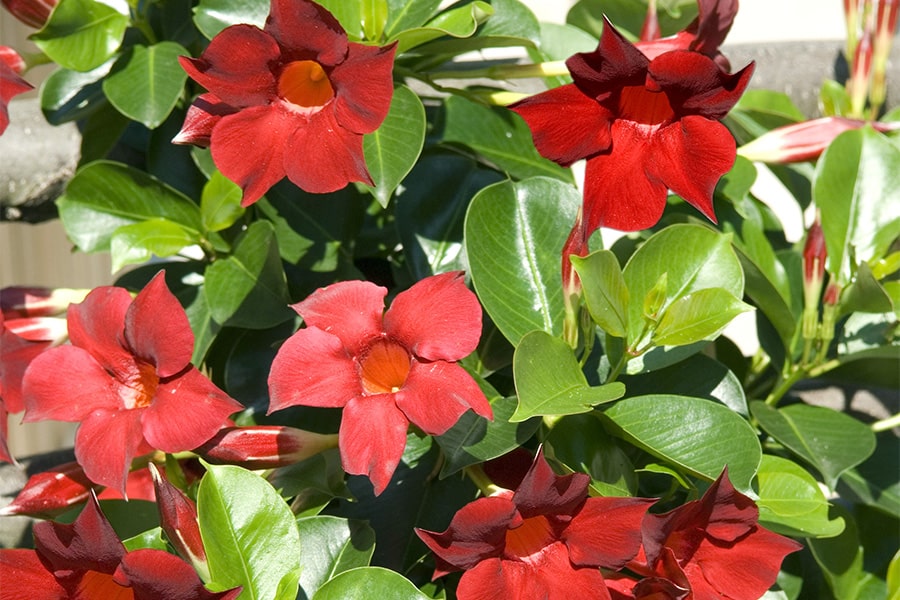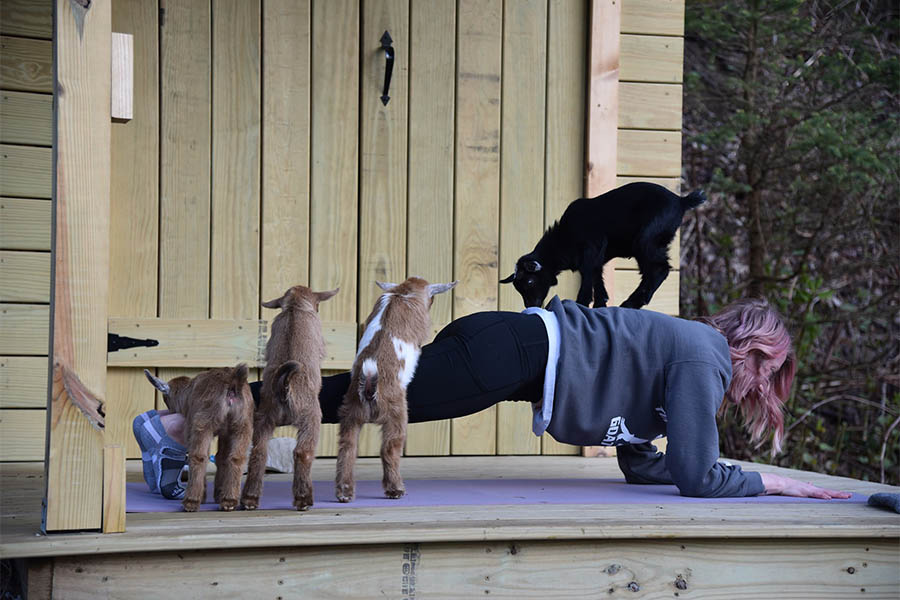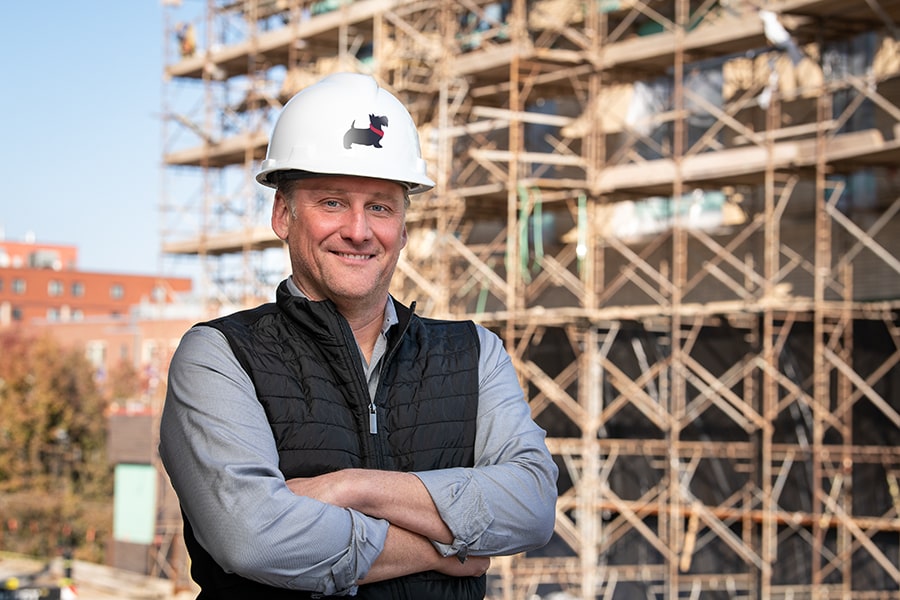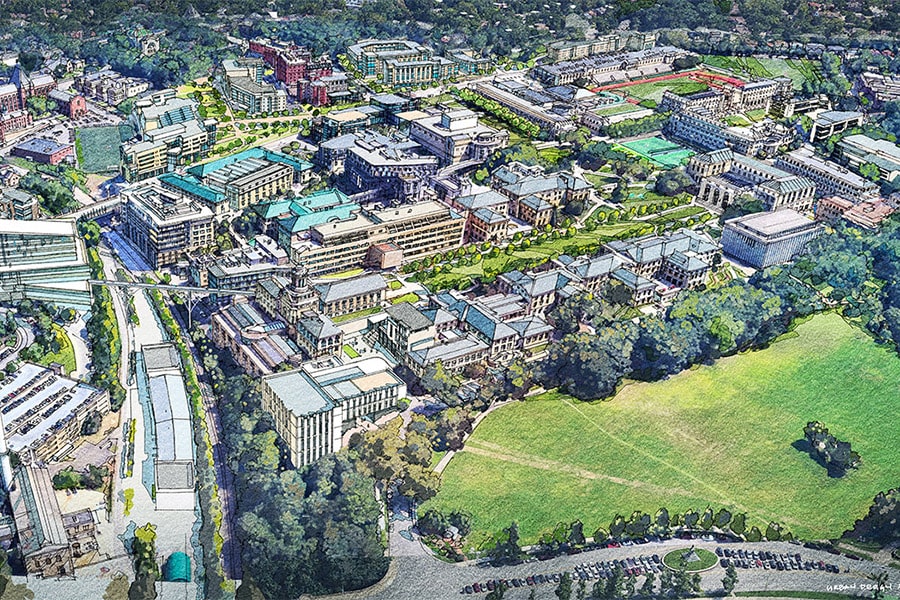Wessell Stays Grounded by Focusing on What's Next
By Kelly Saavedra
Seasons change in landscaping and life, and David Wessell’s ability to masterfully navigate those changes is largely rooted in planning for what comes next.
Wessell began his career at Carnegie Mellon University as a gardener in 1980, when he answered the call for someone certified by the Pennsylvania Department of Agriculture to handle pesticide application. As a kid, he spent summers here taking music and other classes on Saturdays, so for him, the campus grounds were familiar territory.
It was not long after he started his job that the university embarked on its historic venture into computer science. Wessell distinctly remembers standing on The Cut and talking to then senior vice president Richard Van Horn about a new technology that would change the personal computing landscape forever.
“Dr. Van Horn said the first 80-plus years of Carnegie Mellon were noted by its theater arts and engineering, and the next 80-plus years would be noted by its application to personal computing,” he said. “The university had involved itself with an upstart company named Apple. They had signed an agreement on Macintosh. Point-and-click technology was a new concept at that time.”
By the end of the 1980s, Wessell was in charge of grounds operations, managing the gardening staff, university labor staff, truck drivers and auto mechanics. He has initiated and coordinated plant displays throughout campus that have involved a variety of seeds, shrubs, trees and other materials. He oversees pest management, identifies plant diseases, insects and unusual or poor growth, and has performed treatments accordingly. He also manages tree and turf maintenance and irrigation, which requires a comprehensive understanding of entomology, plant pathology and weed science.
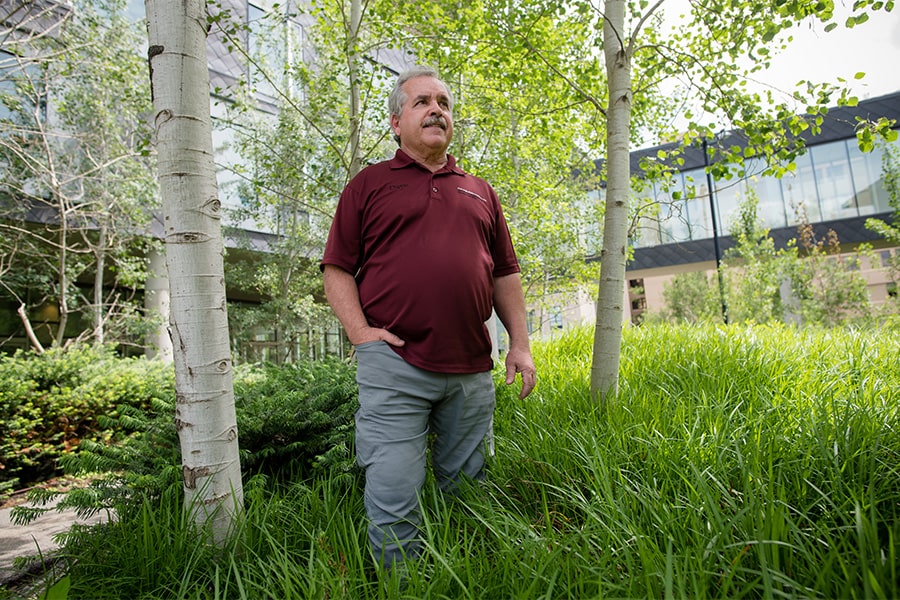 David Wessell manages tree and turf maintenance and irrigation, which requires a comprehensive understanding of entomology, plant pathology and weed science.
David Wessell manages tree and turf maintenance and irrigation, which requires a comprehensive understanding of entomology, plant pathology and weed science.
In the fall and winter months, campus-wide snow removal becomes the priority. Wessell and his team start planning for snow removal around September and it can last through March. The biggest challenges he faced on the job were the times when winter storms buried Pittsburgh in roughly two feet of snow, once in 1993 and again in 2010.
“The storm in 2010 happened during Super Bowl weekend, and we were challenged to keep the campus open. Unfortunately, the City of Pittsburgh was unable to maintain or open the roadways. We were ready to go, but people couldn’t get to campus,” he said.
With all the new buildings being constructed on campus, people kid Wessell about having a lot less work to do these days. Actually, he says, the opposite is true.
“If there was a lawn there before the building, that lawn just needed to be mowed and treated,” he said. “With new buildings comes a lot more complex landscaping along more areas around the buildings that need to be maintained. You’re going to have flower beds, shrub beds, stairs, ramps, entranceways, patios. All of that has to be part of the grounds maintenance scope.”
"It's been a good ride. CMU is a great place to be."
— David Wessell
Planting in the springtime is what he enjoys most.
“We get to play a little bit then. The gardeners get to throw in their suggestions. I certainly have a lot of input into our flowerbed displays, where they are and what they are,” he said.
Lately, they’ve been planting a lot of Dipladenia on campus, which produce bright blooms and lush foliage yet are hardy enough to thrive from May through December.
“The reason we like them right now is they’re fairly deer resistant. We’ve had a major deer incursion from Schenley Park recently,” he said. When there weren’t a lot of people on campus at the start of the pandemic, Wessell says deer came and filled the gap. In the morning, it wasn’t unusual to see five or six deer walk up the center of The Cut.
“They came, and they haven’t quite left yet. We still have a lot that linger during the day, certainly in the evenings and early mornings. So, we have to be more selective right now in what flowers we plant,” he said. “We don’t want to plant something like a begonia, which is very tasty to deer, because they won’t last more than a day or two.”
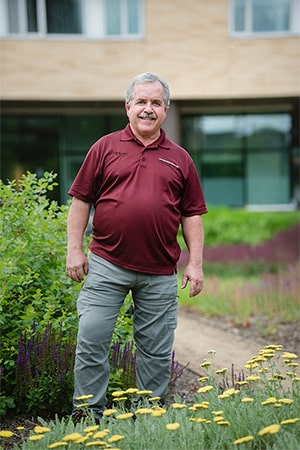
Major film productions have led to other unusual visitors spending time on campus, namely actors Robert Downey Jr. and Michael Douglas (“Wonder Boys”), Thomas Hayden Church (“Smart People”), and Jack Nicholson and Danny DeVito (“Hoffa”), all of whom he says “were hilarious, and great to hang out with.”
Meeting Jack Nicholson at Mellon Institute, which was used as a court façade in “Hoffa,” is one moment he will never forget.
“Danny DeVito, who was an actor in the film and associate producer, asked us, ‘You wanna meet Jack? C’mon, meet Jack!’ He took us to this gigantic motor home on Dithridge Street. Jack Nicholson was sitting in a big brown chair getting makeup put on, which he had to wear a fair amount of for Hoffa. We went back there, and he was typical Jack Nicholson. ‘Hey glad to see you guys! We really enjoy you helping us out and everything.’ Moments like that really stick with you,” he said.
The whole aspect of filming impressed Wessell: the tremendous amount of work that goes into making a film, the hundreds of people associated with it, and the hours and days it took to set up a scene. He can relate to all the planning.
“My work involves a tremendous amount of planning. You always have to be thinking ahead,” he said. “When you’re mowing grass, you’re planning leaf collection in the fall. When you’re doing snow removal, you’re planning where flowerbeds will go in the spring.”
Wessell expects to miss all that planning when he retires on June 30, after 42 years of service to the university. He and his wife are planning to do a little bit of traveling, he says, as people tend to do when they retire.
“It’s been a good ride. CMU is a great place to be. You’re always working with young people here. It’s a ‘what’s next’ environment,” he said. “Keeping that much younger perspective keeps you focused.”

